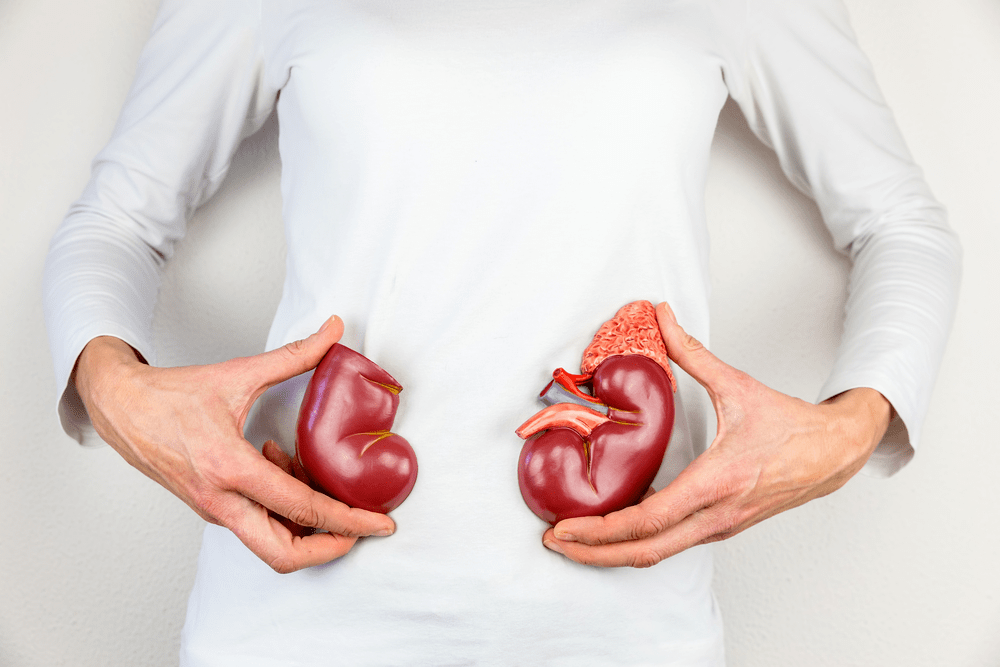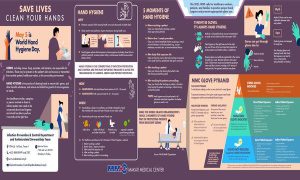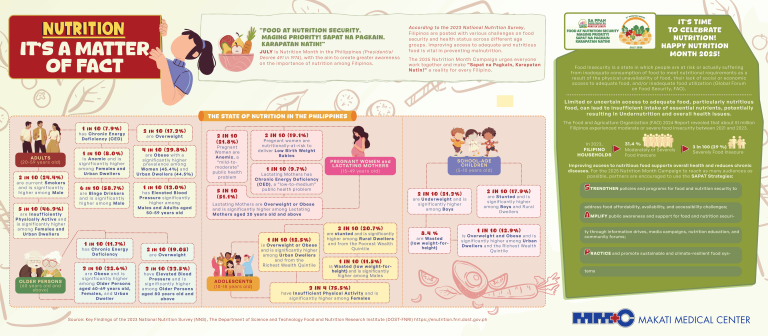One of the key organs in the excretory system is the kidneys, which help dispose of waste from the body in the form of urine. This expulsion of waste products is a vital biological function as it prevents toxic materials from getting mixed into the blood or damaging the cells of the body.
How Do the Kidneys Work?
The kidneys are two bean-shaped, fist-sized organs located on either side of the spine, just above the waist. They are constantly working on a range of functions, including:
- Balancing the amount of fluids in the body through homeostasis
- Filtering waste materials out of the blood
- Making the enzyme renin, which helps control blood pressure
- Producing the erythropoietin chemical that prompts the body to make red blood cells
Among the things that the kidneys do, the most important is getting toxic wastes out of the blood. They filter the blood several times during the day with the help of millions of tiny filters called nephrons.
Each nephron has its own set of internal structures, including the glomerulus and the tubule. These parts of the nephron are responsible for filtering the blood, adding or removing chemicals and water that the body needs, and producing urine.
Common Kidney Diseases
Without proper kidney care, the excretory organs may not function well. This condition can lead to kidney diseases, which affect the body’s ability to get rid of waste and excess water from the blood, as well as manage blood pressure.
Here are some of the most common renal diseases that may cause the health of the kidneys to deteriorate:
- Urinary tract infections (UTIs)
UTIs are bacterial infections that are present in any part of the urinary system, namely the kidneys, ureters, bladder, and urethra. Pyelonephritis, a kind of UTI that is concentrated within the kidneys, may scar the organ if it occurs several times.
- Kidney stones
Kidney stones are produced when salt and minerals like calcium, oxalate, and uric acid crystallize inside the kidneys. This happens when there is not enough fluid in the urine to dilute these substances.
- Chronic kidney disease
Chronic kidney disease, as the name implies, is a long-term condition that can be fatal once it reaches the advanced stage. Chronic kidney failure happens when certain conditions or diseases, like high blood pressure and diabetes, impair the kidneys’ functions. As a result, dangerous levels of waste accumulate in the body.
- Polycystic kidney disease
Polycystic kidney disease is when numerous cysts or small fluid-filled sacs form in the kidneys. This genetic condition can interfere with kidney functions and lead to kidney failure. An ultrasound, CT scan, or MRI may be necessary in detecting whether the cysts are harmless or may pose some serious problems.
- Glomerulonephritis
Effective Ways to Keep the Kidneys Healthy
1. Maintain a healthy diet
A healthy diet is one that includes essential vitamins and minerals that the body needs but contains low amounts of sodium and processed meats that are considered harmful to the kidneys. It should also keep one’s weight in check to avoid obesity problems, which are also risk factors for kidney diseases.
2. Take the right kind and amount of fluids
A rule of thumb is to drink 2.7 liters to 3.7 liters of water per day, although this can be adjusted. For example, it may be necessary to increase water intake during a hot day or when trying to prevent the recurrence of kidney stones. Other liquids that are kidney-friendly include cranberry juice, natural lemonade, and low-fat milk.
3. Keep blood sugar at healthy levels
The proper way to manage diabetes and, therefore, prevent kidney damage is to check blood sugar levels regularly. This is crucial for people who are older or approaching middle-age years.
4. Watch the blood pressure
High blood pressure is one of the most common causes of kidney or renal diseases. When left uncontrolled, high blood pressure can damage the arteries around the kidneys, preventing enough blood from being delivered to the kidney.
Ideally, blood pressure should be between 90/60mmHg and 120/80mmHg. Beyond this range, a person suspected of hypertension should undergo a medical checkup to determine what lifestyle changes or medication are needed.
5. Avoid smoking
Smoking is another culprit that causes a reduced flow of blood to the kidneys. Over time, as the kidneys fail to get enough blood, the filtering mechanisms inside the kidneys may stop working, leading to kidney failure. There’s a 50% likelihood for smokers to develop kidney cancer, too.
Aim for Healthy Kidneys
Kidneys are one of the most hardworking organs in the body, so they need extra attention to keep them in a healthy state and help them perform their functions well. In terms of expert care, Makati Medical Center’s section of Nephrology provides a full range of services that address any kidney-related health issues. Contact us to inquire or set an appointment.











